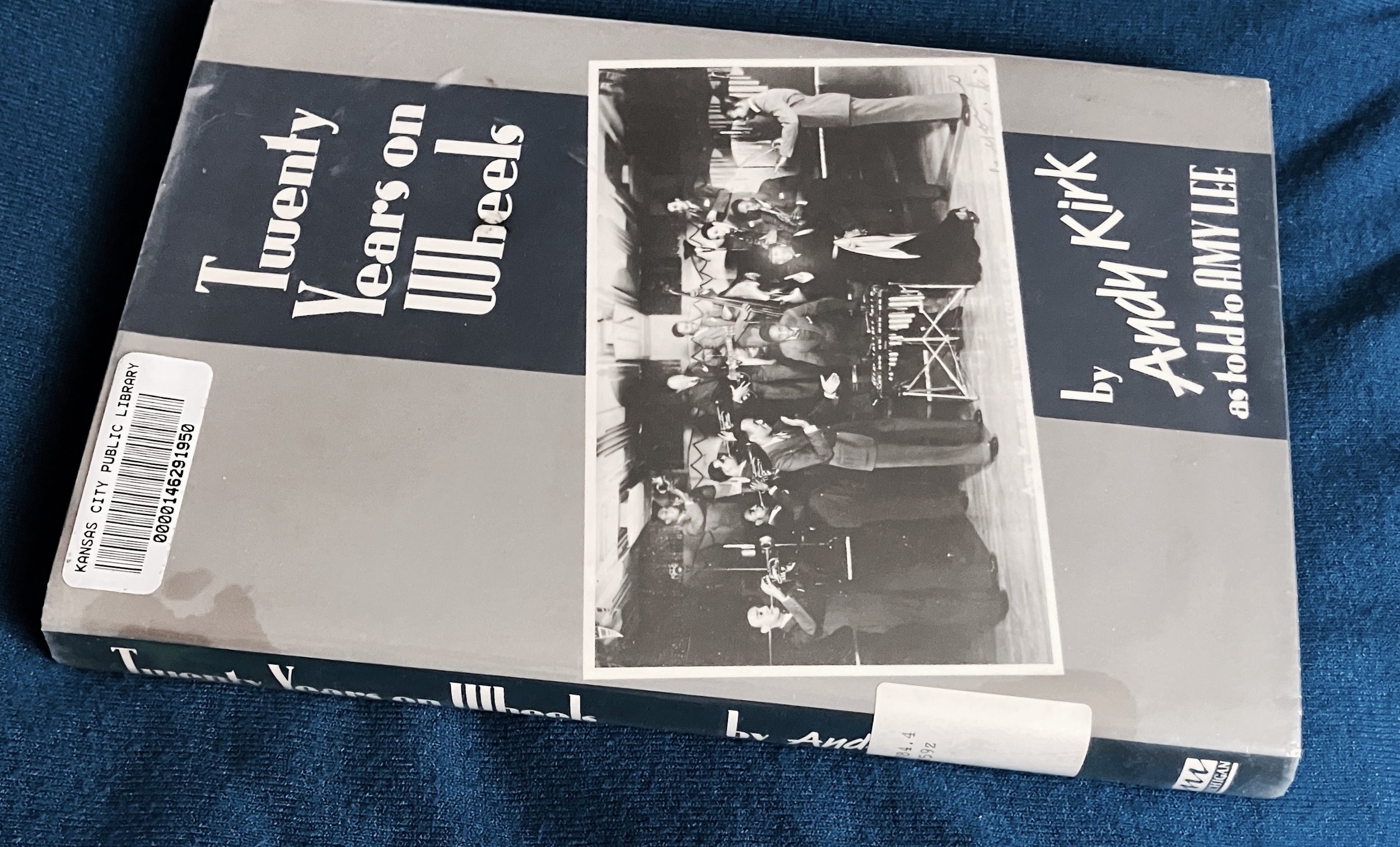I scoured area thrift shops and used bookstores for Andy Kirk’s Twenty Years on Wheels for more than a decade without success. Conceding defeat, I recently borrowed the single well-loved copy of the out-of-print book available in the Kansas City Public Library system.
I was surprised by the brevity of the book published by the University of Michigan Press in 1989. The often stilted as-told-to format assembled by Amy Lee is also a bit disappointing. Yet the 147 pages of Twenty Years on Wheels contains plenty of essential material of interest to Kansas City jazz history completists.
Thanks in part to the contributions of Mary Lou Williams, Kirk’s Clouds of Joy was one of the country’s biggest acts during the commercial zenith of Kansas City jazz. Following a happy childhood in Denver, Kirk came to Kansas City with a unique perspective, partly because his career in music commenced prior to the jazz age.
Catering to white audiences, Kirk’s territory band usually played in the “sweet” format. Even so, he was mandated to record uncharacteristic “race” music like 1929’s "Mess-a-Stomp". He eventually cajoled a reluctant record label to record and release a song for the white market. His instincts were correct- “Until the Real Thing Comes Along” was a nationwide hit in 1936.
Kirk’s accounts of Kansas City’s nightclubs correspond with the colorful stories told by T.J. English in the 2022 study Dangerous Rhythms: Jazz and the Underworld. Twenty Years on Wheels concludes with Kirk’s disappointment upon visiting Kansas City in 1975 after years of living in New York. Kirk called the disrepair of the Jazz District “the saddest thing.”
By then the big band era was long over and Kirk was no longer able to make a living through music. Yet Twenty Years on Wheels is suffused with joy. Just one caveat: library patrons should be advised that the coffee and food stains throughout the book aren’t mine. I wouldn’t dream of defacing the sacrosanct Kansas City relic.
